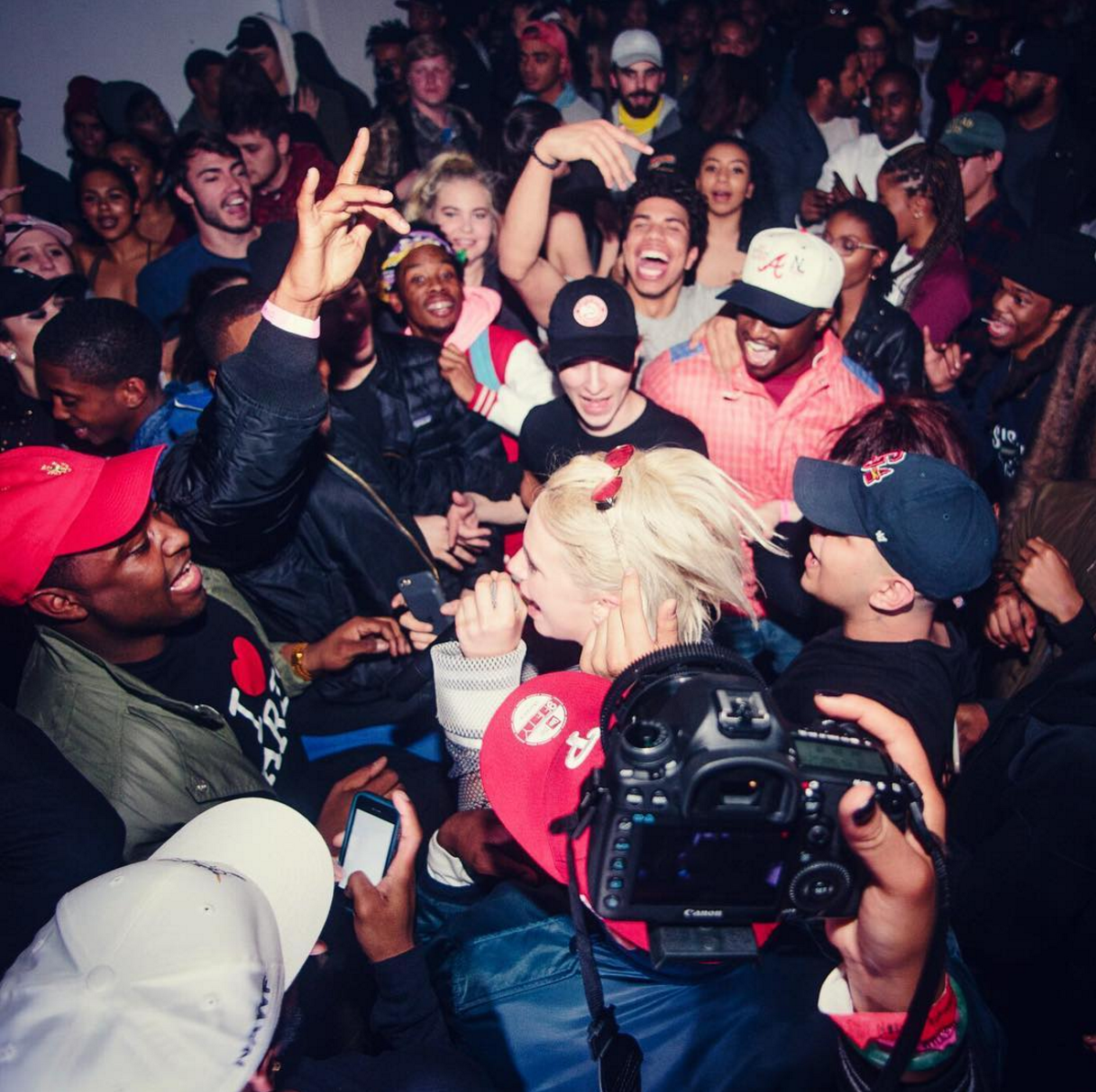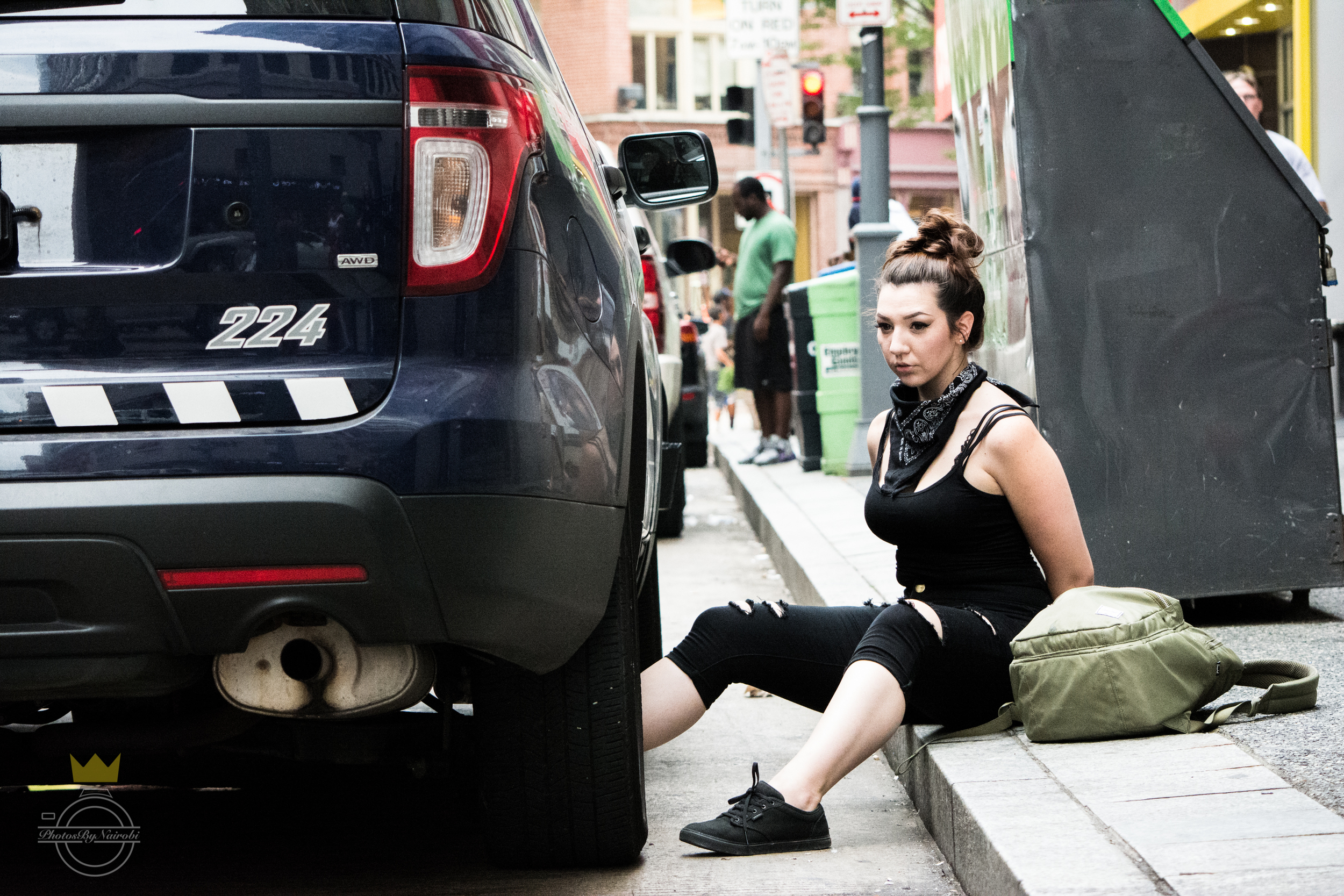Via @YesJulz Instagram
YesJulz, or Julienna Goddard, a 26 year-old Cuban-Caucasian, Miami, Fla. resident has quickly risen to an influential platform. She is a social scene entrepreneur with the ability to bridge gaps between a conscious message and fun environment to promote that message.
Many who have met Julz or view her SnapChat Story would describe her as a "people person." She herself says that she feeds off of people's energy.
The "Director of Vibes" got her start in high school. She found herself as a friend to many different groups of people, and always torn with how to divide her time with them. Rather than separate, she brought all of her friends together senior year by throwing a prom after party. After hosting 200 people and profiting $2,000, Julz knew she had a talent and proceeded to duplicate her promotion and party-throwing skills throughout Miami's club scene.
SnapChat, the photo and video messaging app, works as Julz's main promotion platform, which visually captures her contagious aura and contemporary lifestyle. Viewers of her Snap saw new Champion garments when she visited Agenda trade show in Miami, fans felt a part of the group when she vacationed with Ronnie Fieg of Kith and New York Giants wide receiver Victor Cruz, hearts warm when she delivers lunch to an under funded local elementary school as part of #HashtagLunchbag, and people experienced Travi$ Scott's Rodeo album release party or Art Basel or any of the ragers with rappers Lil Uzi Vert and Lil Yachty all from the screen of their mobile device. "My SnapChat is kind of my therapist at this point," Julz said to Mass Appeal in an interview. Her SnapChat audience gives her visibility, her content makes her relatable, and that is why she is an asset to companies like Sprite, Beats, and EA Sports.
Along with her Snaps, her personal brand, YesJulz Agency, an all-female squad, helps businesses connect their products and messages to the movers and shakers that value them.
"I feel like we as a generation are more collaborative... I'm like, 'Oh, you got this and I got this, let's eat together. I'd rather eat with you than by myself,'" Julz said to The Durrty Boyz of Hot 107.9 in Atlanta, Ga.
Bringing people together in positive environments to have fun is Julz's best talent.
Moreover, Julz is vital to the culture because she represents the youth and understands their power. She recognizes her white skin is preferential to club honors, American people, and corporations. Some people love black culture, so long as it does not come with its Afro-American creators. In supporting musicians like Scott and Wiz Khalifa, in hiring black, Latina, and white females, and in throwing parties for free, Julz stands up for the disenfranchised minority. She is evidence of the goodness that flows in a fair and equal opportunity world.
Evidence lies in her, "#1AM" party, which travelled to Toronto, Los Angeles, and Brooklyn, and saw a diverse range of attendees because anyone is welcomed around Julz. The event is described as, "no gimmicks, no dress code, no frills. 1 AM was merely created to bring the most memorable, authentic vibes to every city unapologetically." Her last “#1AM” event in Miami was shut down by Police due to a "permit discrepancy," code for “too many people of color attending," Julz Tweeted. Rather than let blatant racism tarnish her mood and event, Julz moved the party to a different venue night-of and still had a packed crowd.
Honestly, the mistreatment and prejudices of urban youths at nightclubs, along with expensive table service, bottle fees, and the desire for dance floors, has created a scene for underground parties and intimate ragers that Julz gladly capitalizes on.
You can watch the trials, tribulations, and triumphs of Julz's #1AM Miami party below.


























